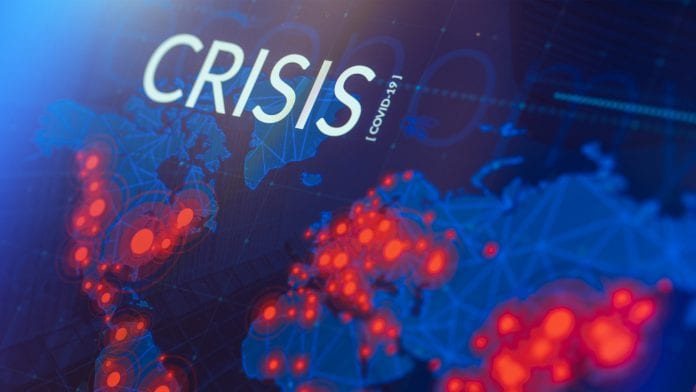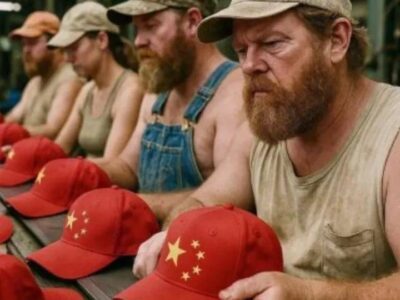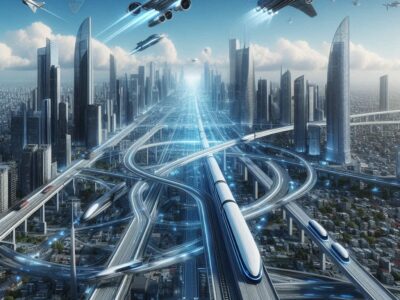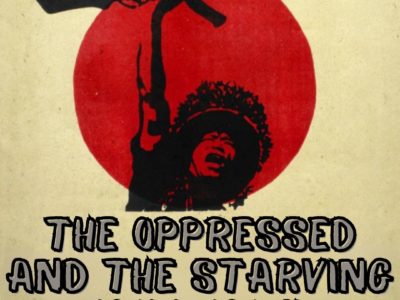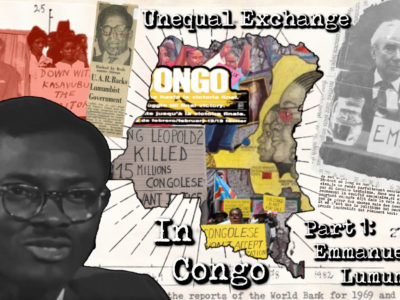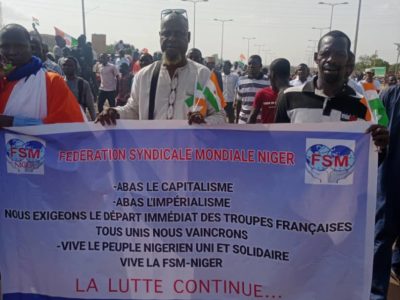New Year status 2021
In last year’s status, I promised a dramatic 2020. That is what happened. A global economic crisis was brewing in the early 2020. There were more or less spontaneous uprisings, from Black Lives Matters in the US, protests against neoliberalism in Paris, uprisings as a result of economic and political crises from Indonesia, Thailand, Lebanon, Iraq, Iran South Africa to Chile Argentina and Bolivia. A trade war between the United States and China intensified and moved towards a new Cold War. But suddenly in March 2020, the Covid-19 pandemic set a brand new, but no less dramatic global agenda.
Covid-19
The contagious disease spread rapidly from China to Europe. The flu-like illness proved to be life-threatening for elderly and frail people. Politicians are faced with the dilemma of shutting society down to save lives or keeping it open to save the economy. The overcrowded hospitals and the many deaths in northern Italy, led to closing down of country after country in Europe, to a bigger or smaller extent, during the spring. At the same time, governments began pumping hundreds of billions into the economy as compensation for business and as wage subsidies to save employment. The politicians, who had great difficulty in finding money to solve the climate or social problems, could suddenly find hundreds of billions to save the system. The same money that the few months before, they were not willing to invest in projects to solve climate problems, just as it was completely unthinkable to shut down the production of, for example, diesel cars or limit air pollution and thus save lives in cities. When politicians are so reluctant to do everything necessary to save the climate, why are the same politicians so willing to put the world economy into recession to fight Covid-19?
First, governments are under pressure from the population. Poor management of the pandemic can result in the loss of government power. Secondly, the Covid-19 pandemic came by surprise and spread so rapidly that the business community did not manage to launch the campaign and lobbying work that would defend their interests in the same way that the fossil fuel and car industries have financed the toning-down of climate change.
Third, Covid-19 is extremely contagious. It knows no borders and it hit Europe and the United States quickly and hard. If Covid-19 distribution were to be limited to the global South as e.g. malaria, it would not have caused a global crisis, despite approx. 400,000 who have die of malaria on an annual basis for decades.
But the main difference is that while a solution to the climate problems challenges the very existence of capitalism, a solution to the COVID-19 pandemic is intended to save the system. The governments’ “lockdown” of society disrupts the accumulation of capital, but it is only a temporary measure, with a view to returning to the “normal”. On the other hand, the necessary measures in relation to climate problems will be permanent, comprehensive and intrusive on private ownership of the means of production, thus challenging the very capitalist mode of production itself.
With the Covid-19 crisis, neoliberal politicians’ criticism of government intervention in the economy has been silenced. The capital happily accepts billions of state subsidies. The global economy has for some time been transformed into Corona Keynesianism. As in 1930s, a massive pumping of money should keep the economy going and kickstart it once the pandemic is over. The Danish aid packages have been adopted by the entire Folketing. Even the left fully agrees that the first and foremost thing is to save the system, instead of using the crisis to demand compensation from capital, not to mention a radical change.
The financial crisis
But no matter what, I do not think we will return to “normality” after the pandemic comes under control during 2021. An extensive economic crisis awaits. It may well be that the Danish economy in isolation and, in the first instance, would come through the crisis unscathed. But the world economy will not and that will affect Denmark. The English, Italian, Spanish, and American economies are hard hit, not to mention countries in the Global “South” that can not just take out loans to finance aid packages.
The Corona aid packages have meant that the world’s total debt is at an astronomical $277 trillion, an increase of $15 trillion during 2020. This amount corresponds to 365% of the global gross domestic product. The cash flow is created by letting the banknote press run and issuing government bonds. But can, and will the financial markets continue to absorb debt that has grown to unprecedented dimensions? A debt that is not matched by growth of the “real economy”, referring to the production of goods and services, that on the contrary has shrunk during the pandemic.
The Covid 19 pandemic is not the cause of the economic crisis. It merely has exacerbated the problems of a system that has been in crisis since the 2007-8 financial crash. The “medicine” given by governments and their central banks at the time was not a cure, but merely a life-prolonging analgesic. This resulted in a low interest rate or even negative interest rate on available capital.
The falling interest rates are a sign of a lack of profitable investment opportunities in production. Instead, investments are shifted to speculation in financial securities, including government bonds. A government bond is a loan certificate in which the government guarantees to repay with interest after a certain number of years–for example ten years. These government bonds are currently an attractive investment for the “excess” capital, as the investor does not expect governments to go bankrupt. In particular, US government bonds are considered a “safe haven”. The United States has thus been able to increase its government debt to new heights. The surplus of capital in general has made it possible for many states to issue bonds with very low interest rates and still get them sold. It has created a “mountains” of government debt on the one hand and huge bubbles of financial capital on the other.
Since the financial crisis in 2008, the growth rate of gross domestic product for the largest economies worldwide–except in China–has been lower than in any decade since World War II. At the same time, global debt has doubled from 2008 to 2018. By the time the Covid-19 pandemic broke out, eurozone growth rates had already shrunk to zero, and the US-China trade war weakened the entire neoliberal world economic order.
The huge debt bubble risks bursting in an explosion that will paralyze the world economy. When it comes down to it, banknotes, like bonds, are just pieces of paper or numbers on accounts. The day is approaching the day when investors lose confidence that the banknotes or deposits in accounts can buy goods.
Rivalry
But economic crisis is not the only problem lurking on the horizon. Forty years of neoliberal globalization ruled by American hegemony are eroded by rising nationalism in the East, West, North and South. The growing nationalism is leading to increased rivalry, primarily between the United States, China and Russia. Rivals do not necessarily accept competition on market terms, but use all means to advance their interests. In recent years, the conflict between the United States and China has grown. China has replaced the United States as the leading industrial nation in the world and it is not only clothes, shoes and toys that China produces. China has a quarter of the world’s scientific staff and skilled workforce, and unlike North America and Europe, the Chinese economy is doing well. According to the latest report from the International Monetary Fund (IMF), China will account for 51 percent of world economic growth by 2020-21. At the same time, the economies of the United States, Europe and Japan have stagnated.
In recent years, the United States has put increasing political, ideological, economic, and military pressure on China to maintain its dominance. The United States military budget is larger than the seven following states combined. In December 2019, Trump declared that military dominance in space is crucial to the United States and has at the same time terminated old disarmament agreements. The Trump administration requested a $705 billion military budget for fiscal year 2021, the Democrats now in December increased it to $740 billion. An armament explicitly aimed at China and Russia. The American confrontation with China will not end with the change of president in January 2021. There is agreement throughout the American political elites from Republicans to Democrats that China is the main enemy of the United States.
But isolation of China, as during the Cold War is no longer possible. Chinese products have become an integral part of the global economy. Transnational corporations cannot easily find a replacement for China’s labor and developed infrastructure. Half of the world’s production capacity for electronics manufacturing is located in China. Trump’s Secretary of State Pompeo is well aware that “China is already within our borders” in the sense that the United States consumes huge quantities of goods produced in China. The American strategy, therefore, is to remove the Chinese Communist Party from government power and replace it with a liberal pro-American regime. It is about damaging the credibility of the Chinese Communist Party by making the most of external and internal contradictions in China. US support for the Hong Kong uprising is an example. If a pro-American liberal government could be established in Hong Kong, the United States hopes that a demand for liberal democracy will spread to China itself. It would enable the United States to support an internal Chinese ally, thus restructuring China’s state and economy in such a way as to ensure continued US dominance over the world economy. However, this strategy will not be as easy to implement as the dissolution of the Soviet Union. Unlike the Soviet Union in the 1980s, China has a strong, well-functioning and technologically developed economy and the Communist Party has the support of the people. At the same time, China has developed good relations with many countries in Asia, Africa and Latin America, among other things through major infrastructure projects and trade.
Greenland
One consequence of increased nationalist rivalry is a revival of imperialism based on territorial control. Small states such as Denmark are drawn into the conflict between the USA, China and Russia. It is in this perspective that one must see the American interest in buying Greenland in 2019. Climate change means that shipping routes south and north of Greenland will be of strategic importance and Greenland’s territory will be perfect for firing and tracking intercontinental missiles. The US offer to buy Greenland was rejected, but Denmark is accommodating to the increased American presence in Greenland. In June 2020, the United States opened a consulate in Nuuk and the US Secretary of State Pompeo visited Denmark in July 2020 to discuss Greenland. In October, the United States, Greenland and Denmark adopted an agreement on new military initiatives as well as trade and investment programs in Greenland. The United States has agreed to let Greenland take over the service contract for Thule Air Base, which has been an important American military installation since World War II. In the future, American warships will use ports in Greenland and the Faroe Islands for repairs, refueling, replacement of crew members and other service and maintenance tasks and then there are the agreements that are secret.[1] It is known that American nuclear-armed aircraft used Thule Air base as an airplane loaded with nuclear bombs crashed near the base in 1968, just as Greenlandic airport was used by the United States to transport prisoners of war to secret CIA prisons around the world.
Other US measures are aimed at freezing Chinese investment. The United States has offered the Greenland Home Rule Government “assistance in assessing foreign investment”. At the meeting between the United States, the Greenlandic government and Denmark in October 2020, China was on the agenda. The Americans warned Greenland of: [2]
“.., how China is trying to gain a foothold in the Arctic. We pointed out that China is not an Arctic country, and Greenland must be aware of this.”
Huawei
In another attempt to weaken the Chinese economy, the United States is doing what it can to annoy the telecommunications company Huawei, which is China’s largest privately owned company. US based companies such as Google has banned the provisioning of software for Huawei phones and tablets. Huawei is considered to have the best and cheapest 5G technology. Finnish Nokia and Swedish Ericsson are the only European providers of similar 5G infrastructure and experts say they can not deliver 5G technology that is as fast or cheap as Huawei.[3]
Twenty years ago, the United States could have outperformed China on the quality and price of advanced electronics, but that is no longer the case. The US government therefore uses other methods. In December 2018, Canada arrested Meng Wanzhou, CFO of Huawei, on a US extradition request based on allegations that Huawai, through a shell company, has traded with Iran and thus circumvented US sanctions policy against the country. Meng is currently under house arrest in Vancouver. Her extradition hearing is scheduled for April 2021, but appeal options mean the case could drag on for years. In addition, many European governments have opted out of the Huawei 5G network following pressure from Washington, which claims that Huawei equipment can be used by Beijing for espionage. No evidence has been presented for the allegations against China. But that such a thing is possible, we know from whistleblower Edward Snowden’s revelation of the United States’ own activity in the field.[4]
A Danish whistleblower reported in August 2020 that the Defense Intelligence Service (FET) has entered into a secret agreement with the US National Security Agency (NSA) on electronic collection of raw data from data cables. The cables are used for all forms of digital communication, including telephone calls, internet and SMS in Denmark–as well as in and out of Denmark. Whistleblower information has been confirmed by a government committee tasked with overseeing the activities of the Danish intelligence service.[5] The American espionage has been directed at the Danish Ministry of Foreign Affairs and the Ministry of Finance, the manufacturers behind the European jetfighter “Eurofighter” and the Swedish arms company SAAB, which produces jetfighter “Gripen”, as well as the Danish arms company Terma, which supplies parts to the American fighter Joint Strike Fighter (F-35). The purpose has been, among other things, to get a contract of five billion dollars for the purchase of fighter jets for the Danish Air Force–which the United States eventually also got.
The Danish intelligence service, whose task was to protect Denmark from such espionage, has given the NSA free rein to spy on ministries and companies. The revelation has caused a scandal. The chief and senior officers of the service have been “sent home” while government prepares an investigation into the matter. This also applies to a former head of the intelligence service, who has since become director of the Ministry of Defense. What makes the case even more burdensome is that the Danish intelligence service has also given the NSA access to data from cables to and from Norway and Sweden, which has created astonishment in our neighboring countries. The Danish Armed Forces also has equipment that makes it possible to monitor the location of all mobile phones and their communication as long as you know the phone number.[6]
U.S. government officials have traveled the world to get Huawei and other Chinese companies excluded from providing 5G networks.[7] Canada, Australia, New Zealand France and the United Kingdom are among the countries that have a de facto ban on the Huawei 5G network. In October 2020, Sweden joined the other European countries’ ban on telecommunications equipment from China. The decision came on the advice of the country’s armed forces and security service, which described China as “one of the biggest threats to Sweden”.[8] However, the explanation may also be, as The Economist predicts, that:[9]
“One of the demonstrations of Huawei (in Europe) could lead to a division of the global market into two incompatible 5G camps … In this scenario, Sweden’s Ericsson, Finland’s Nokia and South Korea’s Samsung will be able to provide networks at an even higher price, consisting of components manufactured outside China. “
A smaller state like Sweden, needs access to the global market and is traditionally a supporter of free trade; but a politically motivated ban on Huawai is, after all, a treat for Ericson. In Denmark, the telecommunications companies have also dropped Huawei and decided to buy Ericson after political pressure.[10] Denmark has thus in many ways been drawn into the risky conflict between the weakened American empire and China, with all the military and economic risks this entails. A conflict is set to intensify in 2021, when China appears to have handled the covid-19 pandemic far better than the United States. The latest projections of the global economy from the IMF show that in 2020-2021, China will account for 51 percent of the growth of the world economy, but the United States will only account for 3 percent.[11]
In addition to the confrontation between the United States and China, there are several regional conflicts. Large parts of the Arab world had been and still are plagued by wars. Entire nations have been laid in ruins from Libya and Iraq across Syria to Yemen. As a loyal NATO partner, Denmark has participated on the American side in wars in Libya, Iraq, Afghanistan and Syria. Denmark is also actively participating in the confrontation with Russia. Denmark has soldiers in Estonia on the border with Russia and we have military personnel in Lithuania who monitors the Baltic airspace. New wars may be lurking on the horizon. Due to the conflict between Iran and the USA / Saudi Arabia, Denmark has sent a frigate into the Strait of Hormuz. From January 2021, it will take command of the European-led maritime surveillance mission in the area. Denmark is an active part of an imperialist world order.
The climate crisis
In addition to the economic and political crises or rather as a basis for all human activity, there are growing environmental and climate problems, which are having increasingly noticeable consequences. Predation on natural resources and the burning of fossil fuels to meet the demands of capital growth and our rising consumption have gradually sharpened the contradiction between nature and the capitalist way of producing, up through the 20th century. Sometime in the 1950s, this contradiction assumed a qualitatively new dimension–the so-called “Anthropocene”, which means a new era, not only of humanity, but in the history of the earth itself, defined as:[12]
“.. the period in the history of the Earth in which humans have a decisive influence on the state, development and future of the Earth.”
This shift coincides with breakthroughs in “consumer society” in North America, Western Europe, Japan and Australia, with a significant increase in consumption of oil and other raw materials and consequent emissions of CO2 and pollution of soil, air and water. In the last hundred years, the United States, Canada, Europe, Japan and Australia have emitted 61%, of the world’s CO2, China and India 13%, Russia 7% and the rest of the world 15%. International shipping and air transport accounted for the last 4%. This inequality in CO2 emissions between the global “North” and “South” is further exacerbated if we calculate CO2 emissions according to where the consumption of goods takes place, instead of where production is located.[13] China, for example, is a major consumer of energy and raw materials, as China is the world’s largest producer of industrially manufactured goods. But China is also the world’s largest exporter of industrial products, primarily to the United States, Western Europe and Japan, and thus consumers in this part of the world are co-responsible for a large part of China’s CO2 emissions.
There is thus a connection between the ecological and climatic problems of the planet and imperialism. The transnational corporations’ global production chains not only generate profits for capital and cheap smartphones, T-shirts and sneakers for consumers in the global North. Inherent in this flow of goods from the South to the North, there is at the same time a transfer of energy and raw materials. There is not only an economically unequal exchange, but also an ecologically unequal exchange. The consequences of pollution and climate change interact with imperialism and its division of the world into producer economies in the “South” and consumer economies in the “North”. With the outsourcing of large parts of the industrial production from the “North”, the pollution of air, water and soil has moved to the global “south”. The consequences of climate change in the form of hurricanes, droughts and floods are also greater in the poor part of the world than in the rich countries.
The ecological and climatic problems can not be solved independently of the “problem of imperialism”. In the near future, the contradiction between the way global capitalism produces and consumes and the earth’s ecosystem may become the main contradiction in the form of great power conflicts over access to energy, raw materials and markets, exacerbated by natural disasters and pandemics as well as refugee flows.
There had been a growing awareness of climate issues in recent years and large demonstrations. But even radical sections of the movement still formulate their demands for the existing political apparatus. Swedish activist Greta Thunberg was invited to Davos to speak to the world’s most powerful politicians and business people and they listen with interest. There is profit to be made in “green conversion” and climate adaptation, and conferences are held and goals are set. But a real solution to problems breaks the framework of capitalism and the current world order. The political world system is divided by national rivalry that blocks the necessary measures that need to be taken. A halt to growth and more consumption collides with both populist nationalism and the interests of capital.
The climate crisis and the ongoing pandemic are expressions of the limits that nature sets for our way of producing, and this contradiction is expressed in capitalism itself. It has simply reached the limit of how much profit can be squeezed out of the planet’s natural resources and people. A crucial turning point for the climate movement will be the recognition that problems cannot be solved within the framework of capitalism and that it thus becomes anti-capitalist.
The American elections
In November, presidential elections were held in the United States. I had feared that Trump would start a war in late summer if the polls went against him, to create a nationalist current that would make voters back on “The Commander in Chief.” But Trump was sure to win the election. So sure, he still insists on winning, only scams and “fake news” say otherwise. He has succeeded in creating a parallel universe, which includes a large part of the American, where he can define what is true and false. But there is something we can learn from the Trump regime. His unpolished shape has uncovered the character of the American state. Business has total dominance over political life. Trump is a Businessman, he despises political interference in economics, economics can govern politically. Trump did not see himself as president of a nation of citizens, but as head of the firm United States of America Inc. where he decides who should do what and when. This business attitude was expressed in the desire to buy Greenland. It is as Trump said when people wondered about the proposal: “It’s just a big real estate deal”. The people are not citizens with their democratic claim to political influence, with only the accompanying furniture. Trump does not engage in political discussions. He uses the rules and hierarchical principles he knows from management: “You are fired!”. It is the total dominance of the economic logic of capital over politics.
Joe Biden is not a businessman, he has been a politician all his adult life, but he will manage the same system dominated by capital interests, just in other words. Joe Biden did not win a landslide victory. A large part of the population thinks he has cheated himself into victory. Trump did not succeed in making “America Great Again”. He has left a divided United States to Biden, who himself seems to be left without new ideas for how the United States can regain global dominance. Trump was more than a bump in the road. Forty years of neoliberalism have changed the world. Outsourcing of production has made China a global power factor and populations around the world have felt the consequences of neoliberalism and will not return to “normal”. Despite the pandemic, 2020 has been marked by many spontaneous uprisings from Thailand over Lebanon and Iraq to Bolivia.
The triple crisis
Global capitalism is facing three crises. A financial crisis that has certainly not been alleviated by the Corona bill to be paid. A political crisis; the supranational institutions that were to regulate global capitalism are eroded by nationalism and rivalry. Behind it all lurks a climate crisis creating extensive disasters.
All of this was temporarily pushed aside by the Covid-19 pandemic. Here at the turn of the year, it is as if we are in a ford. At the same time as the world is on its way out of the pandemic, all the old crises and conflicts lie like in a pressure cooker waiting to be triggered.
As mentioned, the past few years have been marked by spontaneous uprisings in many places on the planet. However, it has been difficult to see what unites them beyond the ability to mobilize through social media and what can best be summed up as dissatisfaction with the politicians who govern them.
People are not only dissatisfied with higher fuel prices as in France, or on mobile telephony as in Lebanon, but also by the contempt of regimes or the disregard of the problems of large groups, such as the poor in Chile or the young unemployed in Iran. These uprisings have often been met with brutal violence. Worst in Iraq, where violence and killings have become commonplace since “democracy was introduced” in 2003.
What these uprisings have in common is also a lack of a vision of what it is for a society they want instead as well as strategies and organization to achieve this goal. Social media means that frustrations are heard and dissatisfaction spread, but they have difficulty bringing the protests beyond demonstrations in the streets.
We can expect more of such spontaneous revolts until a more structured political force emerges and proves to be able to organize and channel this anger into a struggle not only for another government, but a different world order.
It’s like the whole world is holding its breath here at the turn of the year, waiting for what follows covid-19. I think 2021 will be another dramatic year in an era where capitalism is gasping to regain composure. We must not do everything we can to “keep our hand under the system” but work to change it.
Torkil Lauesen
29.12.2020
Proofreading and editing: julie.
- Politiken (2020), USA forhandler om aftale for krigsskibe i Nordatlanten. Politiken 28 October 2020. ↑
- The Wall Street Journal (2020), U.S. Holds Talks Over Economic, Security Arrangements With Greenland Oct. 28, 2020. ↑
- Lucy Fisher, “Downing Street Plans New 5G Club of Democracies,” Times, May 29, 2020. ↑
- Ball, James and Rushe, Dominic (2013), NSA Prism program taps in to user data of Apple, Google and others. The Guardian 6.6. 2013. Greenwald, Glenn Edward (2014), No Place to Hide: Edward Snowden, the NSA, and the U.S. Surveillance State. Metropolitan Books New York 2014. ↑
- TET (2020) Tilsynet med Efterretningstjenesterne særlig undersøgelse af Forsvarets Efterretningstjeneste (FE) på baggrund af materiale indleveret af én eller flere whistleblowere. ↑
- Har Danmark købt omstridt teknologi til overvågning? Ja, sagde Forsvaret, men trak så i land. ↑
- Fredriksen, Nicolas (2020) 5G: Bulgarien og Sverige ekskluderer kinesiske selskaber. 5G-Netværk.dk 26.10.2020 ↑
- Reuters (2020), Sweden bans Huawei, ZTE from upcoming 5G networks By Supantha Mukherjee and Helena Soderpalm, Reuters 20 October 2020. ↑
- Economist (2019) Special Report: Global Supply Chains by Vijay Vaitheeswaran. Economist, July 13, 2019, page 4. ↑
- Mortensen, E.H and Mirzaei-Fard, Marcel (2020), Sidste danske teleselskab dropper 5G fra Huawei: Nu går kineserne efter 6G. Danish Radio and Television. 19.11.2020. ↑
- IMF (2020), World Economic Outlook Update, June 2020. ↑
- Anthropocene Working Group (2019), “Results of Binding Vote by AWG,” May 21, 2019. Online: quaternary.stratigraphy.org ↑
-
Peters, Glenn P. (2008): From Production-Based to Consumption-Based National Emission Inventories, in Ecological Economics 65, no. 1.2008, page 13–23. World Resources Institute. ↑

